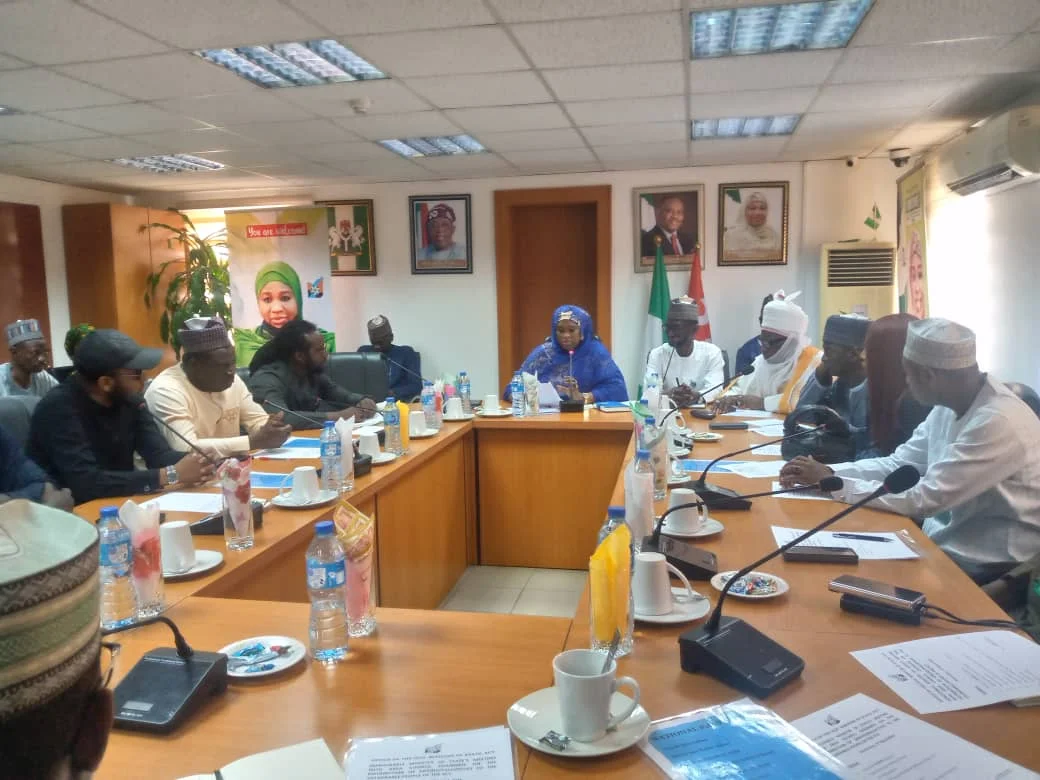Business
IMF Harps On Economic Diversification For Nigeria
In order to meet its developmental needs, the International Monetary Fund (IMF) has stated the need for Nigeria to diversify its economy.
The Director of the African Department, International Monetary Fund, Abebe Aemro Selassie, stated this during the African Department April 2024 press briefing recently.
Selassie, who unveiled the Sub-Saharan Africa report, titled, “Tepid and Pricey Recovery”, said, “I think Nigeria first and foremost needs to diversify its economy. Second, this also applies to the resources that the government relies on, which are excessively dependent on oil and not enough on non-oil revenue”.
He noted that the low tax revenue-to-GDP ratio of the country was of serious concern.
“For a country like Nigeria, Africa’s most populous country, with all of those development spending needs, we think it is problematic that tax revenue to GDP is only 8-9 per cent when it should be a lot higher so that more resources can be spent on building universities, on building infrastructure.
“And then lastly, on the monetary and exchange rate area, it is also, we think, important to have a system that is broadly reflective of supply and demand conditions, and I think that is the direction in which the government has moved”, Selassie noted.
While expressing support for the policy direction of the Tinubu government, the Director said, “This government came in last year, inherited very difficult macroeconomic conditions, huge imbalances that were being masked by a lot of controls that were not effective either. And they have been pursuing policies that we think are broadly in the right direction.
“First and foremost, this is for the people of Nigeria, the government of Nigeria, to choose. We have provided advice in terms of what the ideal mix of policies would be. And just to be clear, we have many reports on this”.
Business
NCDMB Tasks Media Practitioners On Effective Reportage

Business
FCTA, Others Chart Path To Organic Agriculture Practices

The Federal Capital Territory Administration (FCTA) and other stakeholders have charted path to improved organic agriculture practices nationwide.
At a 2024 national organic and agroecology business summit held recently in Abuja, stakeholders took turn to speak on the additional areas of promoting the practices.
The Mandate Secretary, FCT Agriculture and Rural Development Secretariat (ARDS), Lawan Geidam, advocated for sustainable practice to develop resilient food systems that will benefit people.
The event, with the theme,”Towards Policies for Upscaling Organic Agroecological Businesses in Nigeria”, is aimed at fostering growth in the organic agriculture sector.
Geidam, who was represented by the Acting Director, Agric Services, in the Secretariat, Mr. Ofili Bennett, emphasised the success of organic and agroecological farming, reling on the active involvement of farmers, businesses and consumers.
He reassured attendees that the FCT Administration, led by the Minister, Nyesom Wike, and Minister of State, Dr. Mariya Mahmoud, remains dedicated to supporting initiatives that enhance the livelihood of residents.
Geidam described the partnership between the Secretariat and the organic and Agroecology initiative for a monthly exhibition and sale of organic products in the FCTA premises as a testament to this commitment.
“The ARDS remains committed to driving policies and initiatives that align with national goals and global standards”, Geidam said.
On her part, the Chairperson of Organic and Agroecology Initiative, Mrs. Janet Igho, urged residents to embrace healthy eating habits to sustain a good lifestyle. She stressed the importance of adopting organic practices, highlighting the benefits of going organic, growing organic and consuming organic products.
Igho expressed her optimism regarding the Agricultural Revival Programmes as articulated in President Bola Ahmed Tinubu’s “Renewed Hope Agenda”, which aims at fostering food and nutrition security.
She also extended her gratitude to ARDS for graciously allocating a space in the FCTA premises for the exhibition and sale of organic products, noting that the platform has been effectively used to advance the promotion of organic agriculture in FCT.
Igho outlined several benefits of organic agriculture which includes improved soil health, increased biodiversity, availability nutritious and healthy food and a reduced carbon footprint.
Stakeholders at the summit, underscored the critical need for enhanced private sector involvement and robust capacity building initiatives for farmers.
They highlighted the importance of implementing supportive policies to foster the growth of the organic agriculture sector.
In the light of the significant challenges facing Nigeria’s agricultural landscape, stakeholders decided that organic agricultural practices present sustainable solutions and a pathway for a more resilient and productive farming systems.
The three-day summit featured exhibitions showcasing organic foods, fruits, vegetables and fertilizers, providing an opportunity for residents to better appreciate the benefits of production and consumption of organic agricultural products.
Business
Dangote Refinery Exports PMS to Cameroon

-
Sports2 days ago
Odiemerenyi Wins OML 58 Tournament
-
Nation2 days ago
Fubara Gets Kudos Over Grassroots Dev
-
Rivers2 days ago
RSG Condemns Acts Of GBV … Calls For Collective Action
-
Opinion2 days ago
Nigeria’s Electricity Sector: Need For Restructuring
-

 News2 days ago
News2 days agoForge Unity For Progress, Fubara Urges Nigerian Youths …Accepts Beacon Of Hope Award
-
Politics2 days ago
Inclusivity: Chief Whip Makes Case For Women
-
Sports2 days ago
Subsea Cycling Club Chairman Solicits For Support
-
Nation2 days ago
Director Tasks ICAD Members On Professionalism

